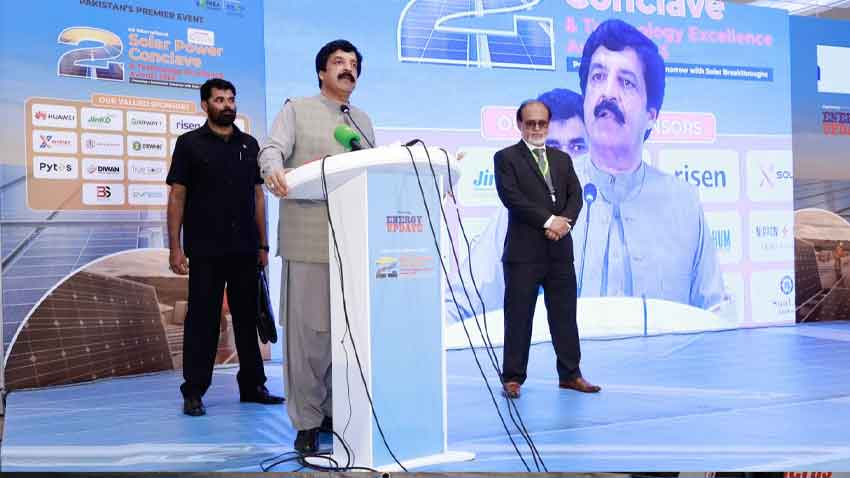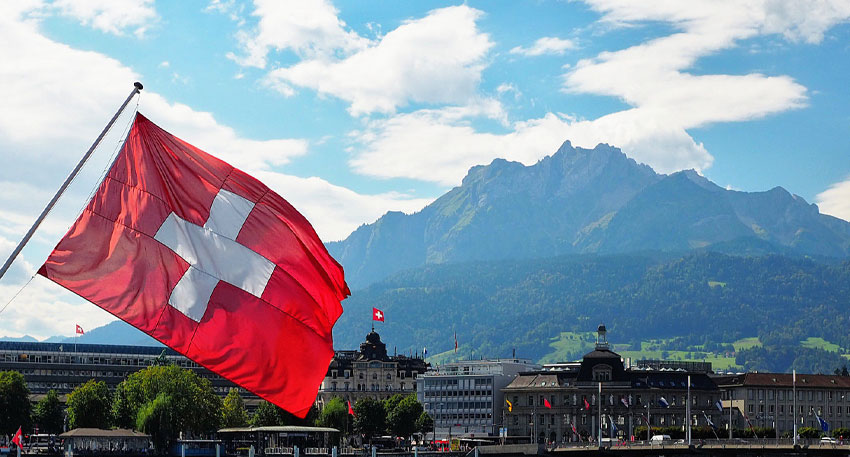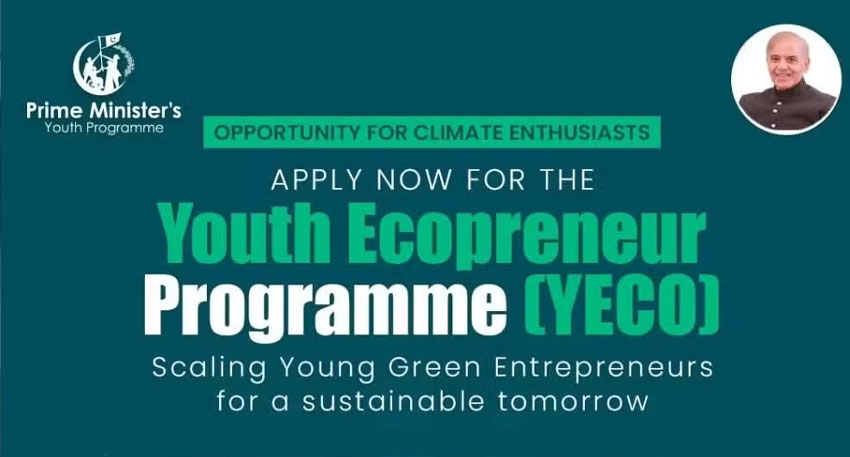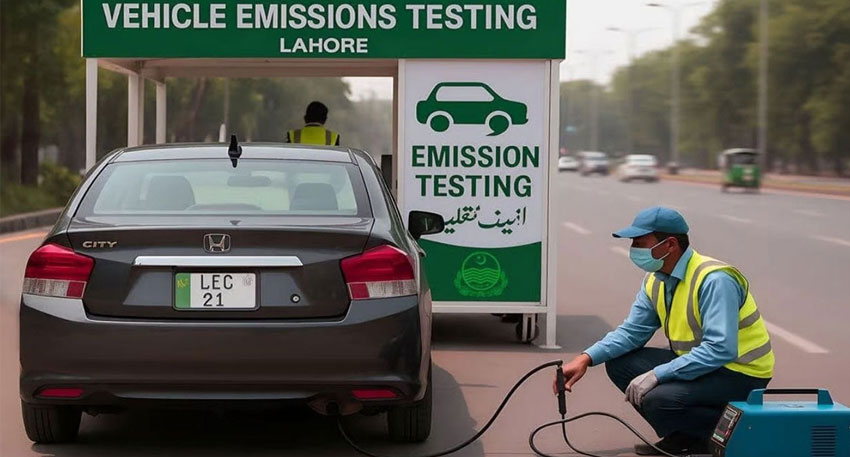
The seminar at 2nd International Solar Power Conclave and Technology Excellence Awards 2025 was held by Energy Update in collaboration with Private Power & Infrastructure Board (PPIB), Pakistan Solar Association (PSA), Pakistan Alternative Energy Association (PAEA), and Renewable Energy Association of Pakistan (REAP), in Lahore.
On the occasion, Punjab Governor Sardar Saleem Haider Khan has said that the renewable energy is the answer to environmental degradation causing climate disasters in the country.
“The solar is the best energy source to preserve the environment in view of the current climatic conditions and prevent natural disasters like floods in Pakistan,” he said while addressing the seminar.
The Governor has emphasised that government’s support is crucial in promoting solar energy as electricity cost has become unaffordable for the most people in the country. If the government had to make harsh agreements with IMF to secure loans, it is still not appropriate to put entire burden of decisions on the people.
He said the government must support the solar power sector to get out of IPPs trap quickly in order to ensure cheap electricity to industry and the people. “It really pains me when the government was shifting policies on green meters, which created a lot of uncertainty among the people,” he added. After 2022 floods in Sindh, he said, the Sindh government carried out massive rehabilitation by constructing 2.1 million houses with solar system installation in each and every house.
“We need renewable energy revolution in Pakistan through local manufacturing of solar panels and inverters on industrial scale. The solar fraternity must come forward,” he said, while assuring that the government will support them.
Chairman of Prime Minister on Youth Program Rana Mashood Ahmad Khan acknowledged that IMF agreements were a bitter pill to swallow for the people, but believed that the stability will ensue as soon as IMF agreement terms are fulfilled.
He said that technology was taking over every aspect of life. “We cannot escape from it. Therefore, we have to embrace it,” he said, adding that our vibrant youth had hacked India’s digital systems during recent India-Pakistan war.
He said that the government has incorporated AI in curriculum and training modules in every field of life. We have designed special courses in mines and minerals. He also informed that Electric Vehicles (EVs) Policy 2030 has been rolled out, whereby the government aims to convert 60 per cent of vehicles into EVs.
He said that Pakistan government would support interested companies to set up local manufacturing units in the country. Prime Minister Mian Shehbaz Sharif will soon visit China in this regard, as clean and green energy will also help mitigate climate change effects.
Read more: Pakistan’s solar boom: What’s behind its rise as a global import giant?
Member, Prime Minister’s Pakistan Solarization Committee, Engr. Syed Faizan Ali Shah said that there are 40 million electricity consumers including 18 million lifeline units in Pakistan. “The lifeline consumers have gone up from 11 million to 18 million since 2022,” he said, adding that, at least, 7 million consumers have been added to the lifeline category in the last three years alone due to solarization of households. It forced government to increase subsidy to 7 million more households since 2022.
Javed Afridi lamented that there has been little work to promote local industry so far in Pakistan, which stopped expansion of local production. “The unfriendly policies and aggressive taxation halted the growth of local industry,” he said, adding that, if government supports local industry, it will generate employment and earn a valuable foreign exchange for the country.
Faaz Diwan, Director Diwan International, said that the imposition of tax on solar panels is not fulfilling its purpose, as the government is collecting revenue from the poor, whereas the big users are getting away it. “The big users either get tax rebate or are they get it completely waived off,” he said, adding that the PSA must convey the message to the government.
Athar Hayat, CEO Bahum Global & Bahum Associates, said that Pakistan is one of the top 10 solar markets in the world.
Engr. Haider Javed from Practice Lead Renewables, MMP Pakistan, says that, “We must adopt new technology before it gets redundant and new technology takes over. For instance, he said, the floating solar also ensures water security.
Zakir Ali, CEO Inverex Solar Energy, said that the solar energy is here to stay. It is not going to go away. However, the models and methods may change. Therefore, he said, the government must support the solar energy sector and encouraged investors to invest in solar energy in Pakistan.
Waqas Moosa, Chairman of the Pakistan Solar Association, discussed the government’s solarisation agenda and the importance of private sector partnership in advancing renewable energy initiatives in the country.
Besides, Faraz Muhammad Khan, Sales Strategy & Development Manager, Jinko Solar Co. Ltd., Mr Dany Song, Director of the Product Centre at Risen Energy, Waqas Khaleeq, Chief Executive of Smart Solar, Hamza Sajid from Solis Inverters, Engr. Mian Fahad, Country Director of Growatt New Energy, Syed Fahad Zeeshan, CEO Interface Engineering and Construction, Mubarak Hussain Mir, Country Manager Huawei Digital Power Pakistan.




